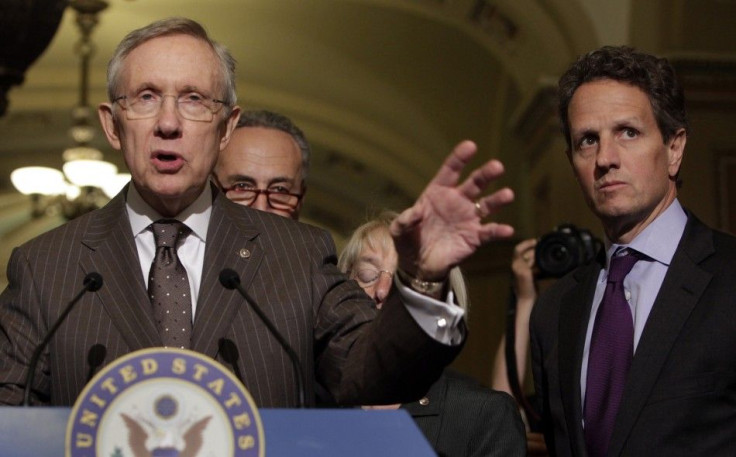U.S. Leaders Push Dueling Debt Ceiling Plans

President Barack Obama and Congressional leaders have missed a self-imposed Sunday deadline reach a deal to raise the U.S. federal debt limit, bringing the default deadline for U.S. obligations even closer.
Failure to raise the limit by August 2 would cause the U.S. government to default on certain obligations, compromising nation's pristine AAA credit rating.
Both Democrats and Republicans have indicated for months that a default is not an option but have failed to agree on a way forward.
The parties met in the White House on Saturday, but no progress was made. On Friday House Speaker John Boehner broke off talks with Obama, saying he would pursue a bipartisan solution with members of the Senate.
On Sunday, Senate leaders were preparing a plan that would extend the U.S. federal debt limit through 2013, raising the ceiling on the current $14.2 trillion debt, according to the Washington Post.
An aide for Senate Majority Leader Harry Reid, D-NV, told the Post that the plan offers to cut spending by $2.5 trillion in exchange for an equal rise in the federal debt limit.
The aide, who spoke on condition of anonymity, said the package would include up to $1.2 trillion in federal spending cuts.
The aide said that the package would not include tax increases.
People familiar with the situation told the Post that the package would rely on savings from the ends of wars in Iraq and Afghanistan.
The U.S. is expected to withdraw combat troops from Iraq and Afghanistan by the end of 2011 and 2014 respectively.
Publicly, Boehner said in a televised interview that if a bipartisan solution isn't possible, he would pursue a solution with his Republican colleagues, who control the House.
Boehner's plan would be a shorter-term extension than the Reid plan. Obama has vowed to veto such a plan, saying it would be disruptive to market stability.
Meanwhile, Obama's top economic deputy, Treasury Secretary Timothy Geithner said in a televised interview that uncertainty over the debt ceiling needed to be removed to reassure investors, adding that a short term solution would continue the uncertainty.
© Copyright IBTimes 2025. All rights reserved.




















